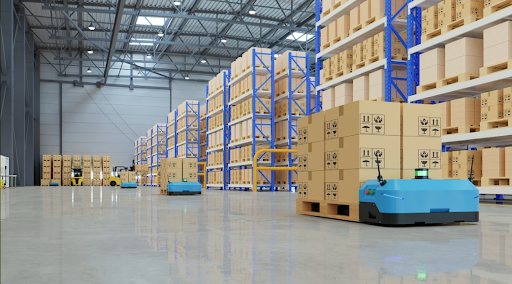Do You Have to Seal Concrete?

When you’re installing a concrete floor, you should always add a sealer coat on top to help prevent slips and falls and discoloration. Since concrete is naturally porous, a concrete sealer helps prevent dirt, waste, and other bacteria from getting inside the concrete and damaging it from within.
Before installing a sealer coat, there are a few things you should know.
Types of Concrete Sealers
There are four main types of concrete sealers to choose from:
- Acrylic
- Epoxy
- Polyurethane
- Polyaspartics
Acrylic
Acrylic concrete sealers are good for several reasons. First, they are incredibly slip and fall resistant, making them perfect for grocery stores, food and beverage companies, auto dealerships, and commercial buildings. Acrylic is also abrasion-resistant, making it ideal for pharmaceutical labs and other industries that work with chemicals.
One of the biggest benefits of acrylic comes down to how fast it cures. Out of all the concrete sealers on the market, acrylic is one of the fastest to cure. It can cure in as little as four hours. Furthermore, it’s very easy to maintain and install, and many projects can be completed over the weekend.
Epoxy
If you’re looking for a durable, glossy concrete sealer, look no further than an epoxy coating. Like acrylic coatings, epoxy is also resistant to abrasions, chemicals, and slips and falls. One of the reasons why epoxy is so popular is because it can come in a variety of colors and designs, including quartz and different metallics. Epoxy coatings are commonly used in areas that experience heavy foot traffic like hospitals, schools, and museums.
Polyurethane
Polyurethane is a versatile type of concrete sealer since it can be used either indoors or outdoors. This type of sealer is solvent- and water-based and helps protect floors from discoloration even when exposed to UV lights. It is most commonly used in auto garages and stadiums.
Polyaspartics
Polyaspartics are great because they bond very easily to concrete. Furthermore, this type of concrete sealer is durable and UV-resistant, so it won’t fade the surface of your concrete. This is often used in high-traffic areas. What you need to remember about polyaspartic coatings is that they usually need a primer beforehand. However, once both the primer and polyaspartic coating have been applied, you’ll have an extremely abrasion-resistant floor.
Another benefit of polyaspartic coatings is that they only take up to 24 hours to cure.
Why Should You Seal Your Concrete?
We’ve already talked about the different kinds of sealant, but you might be asking yourself if you really need to seal your concrete. There are many benefits of sealing your floors. Here are a few reasons you should consider sealing your concrete floors.
- Protection – Sealing your concrete can protect your floors from damage in a number of ways. It protects from the elements – everything from heat and sun exposure to ice and snow. It can also protect from chemical spills such as oil. An added bonus is that sealing your concrete also helps it block out moisture that can cause water damage.
- Extends The Life Of Your Concrete – While concrete on its own can be fairly resistant, sealing your concrete can extend its life longer, even by decades.
- Added Durability – You can prevent damage by sealing your concrete, making it more durable than it would be if it wasn’t sealed. This helps prevent it from cracking, scaling, and other forms of damage.
- Keeps Mold Away – As we previously mentioned, sealing your concrete keeps out moisture, which means it decreases the chance of your concrete becoming discolored due to mold or mildew.
- Enhances The Colors – A sealant can help keep the colors of your concrete intact for longer as it helps prevent discoloration.
What Happens if Concrete Floors Aren’t Sealed?
As mentioned above, concrete floors are naturally porous, so they’re susceptible to wear and tear if not properly sealed. If you don’t deal your concrete floors, your biggest issue will be combating the freeze-thaw cycle. When the temperatures drop, it allows moisture to seep into the concrete and expand. This keeps happening until the concrete cracks and subsequently needs a repair.
In addition to the freeze-thaw cycle, common chemicals, oil, and even fertilizer used on adjoining lawns can discolor your concrete.
Sealing your concrete is an excellent way to make your floors more durable and last longer. When considering sealing your concrete, you should have an expert come in and complete the job. Sealing concrete is a lengthy process and you can potentially ruin your floors if you attempt it yourself. .

